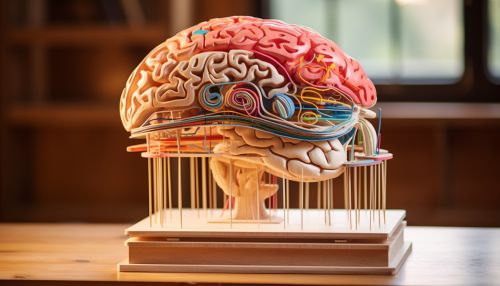The Science of Human Cognitive Psychology
Introduction
Human cognitive psychology is a subfield of psychology that explores the mental processes involved in gaining knowledge and comprehension. These processes include thinking, knowing, remembering, judging, and problem-solving. These are higher-level functions of the brain and encompass language, imagination, perception, and planning. Cognitive psychology is an integral part of the broader discipline of cognitive science, which combines aspects of psychology, neuroscience, computer science, philosophy, and linguistics.


History of Cognitive Psychology
Cognitive psychology emerged as a reaction to behaviorist theories, which dominated psychology in the early 20th century. Behaviorism focused on observable behaviors, largely ignoring the role of internal mental processes. The cognitive revolution in the mid-20th century marked a shift in focus towards the scientific study of internal mental processes. Cognitive psychology became a dominant force within psychology, and remains so today, with cognitive psychologists often working alongside other professionals in fields such as neuroscience and computer science.


Key Concepts in Cognitive Psychology
Cognitive psychology encompasses a wide range of concepts, including attention, memory, perception, problem-solving, and language.
Attention
Attention refers to how we actively process specific information present in our environment. Attention is a limited resource, so we must make decisions about what information we pay attention to and what we ignore. The study of attention has also led to practical applications, such as how to design products and interfaces that capture our attention.
Memory
Memory is the process of retaining information over time. It is an essential part of cognitive processing. Memory research has led to several important discoveries, theories, and applications. For example, cognitive psychologists have developed various strategies to improve memory recall such as chunking and mnemonic devices.
Perception
Perception involves interpreting the sensory information that our bodies process. The study of perception gave birth to the Gestalt school of thought, which believes that the whole is greater than the sum of its parts. In other words, perceptions are more than mere sensory input; they represent a cognitive process where our brains interpret the sensory information and make sense of it.
Problem-Solving
Problem-solving and decision-making are critical aspects of cognition. Cognitive psychologists have studied various aspects of problem-solving, including the concept of problem space and the theory of working memory.
Language
Language is a cognitive function that allows us to communicate. Cognitive psychologists have studied various aspects of language, including language acquisition, phonetics, phonology, morphology, syntax, semantics, and pragmatics.


Cognitive Psychology and Other Disciplines
Cognitive psychology is closely related to several other disciplines. For example, cognitive neuroscience is an interdisciplinary field that combines the study of the brain with the study of cognition. Cognitive neuropsychology is a branch of cognitive psychology that aims to understand how the structure and function of the brain relates to specific psychological processes. Cognitive psychology also intersects with philosophy, computer science, and linguistics.
Current Research and Future Directions
Current research in cognitive psychology covers a broad range of topics. Some researchers are interested in understanding how people understand and represent knowledge. Others are interested in how people learn new information and skills, and how they make decisions and solve problems. Some cognitive psychologists are also interested in the biological bases of cognition and how mental processes are affected by social and cultural factors.


